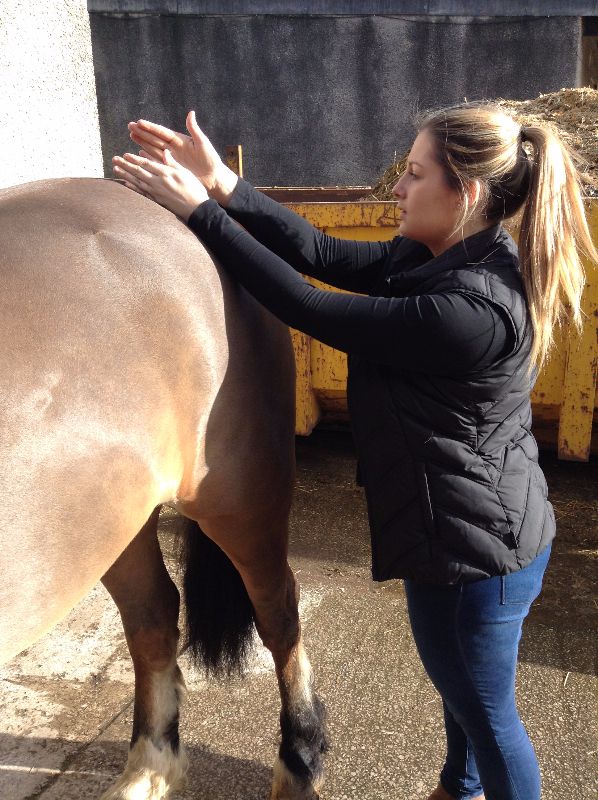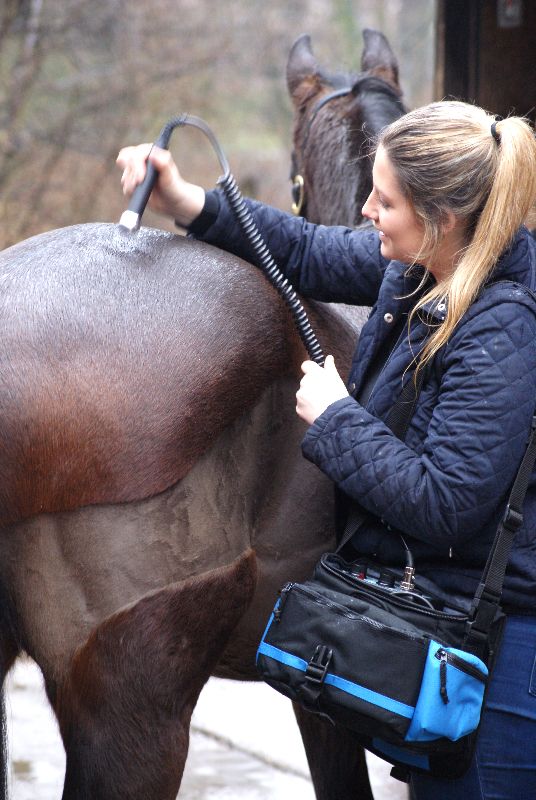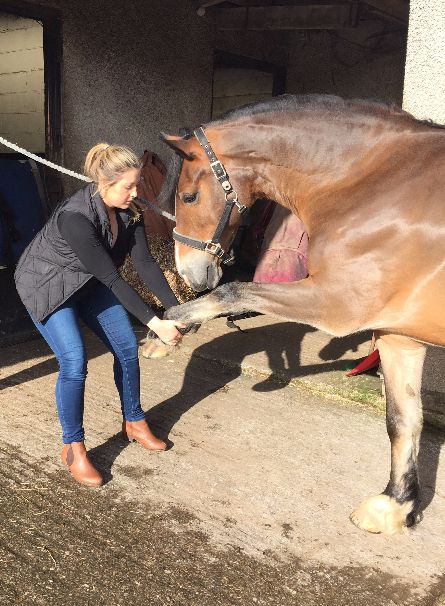Equine Physiotherapy
Horses, in the same way as us seem to injure themselves quite regularly. Injuries can be caused whilst playing in the field, as a result of getting cast or even through yard related accidents. Physiotherapy can help promote the healing of these injuries and hopefully have your horse feeling good as new in no time.
Physiotherapy can benefit horses of all disciplines and abilities; Physiotherapy is not just for your elite competition horse. Similar to Humans, Horses often compensate for any pain felt by adopting their posture and gait. This means that sometimes issues can go unnoticed for quite some time. As an owner it is important to recognise any behavioural signs which may be your horses’ way of communicating with you to let you know that they are in pain.
Common Signs Include:
- Decline in performance and refusing jumps
- Schooling Issues such as: disunited canter, unable to achieve the correct canter lead, rushing, poor transitions, struggling to work in an outline or lack of bend.
- Reluctance to engage and use hind limbs.
- Behavioural issues such as rearing, bucking and napping.
- Change in temperament such as dislike of being groomed, resentfulness towards being tacked up, or being cold backed.
- Lameness
- Lack of gait symmetry and / or straightness.
- Loss of muscle / uneven muscular development.
- Head shaking
- Uneven shoe wear
- Saddle slipping
Despite the contrary belief, Equine Physiotherapists are not just “The Back Man”. As well as back issues, Physiotherapy helps to treat a range of musculoskeletal problems including muscle sprains, wound healing and tendon rehabilitation. In parallel to this, Physiotherapy can also help with any secondary issues that may arise as a result of a specific condition.
To expand on this, pain can arise as a result of a lameness or disease. Conditions such as capped hocks, laminitis and poor foot balance can often make the horse alter its gait to mask and compensate for the pain. This compensation results in secondary problems such as back pain and spasms. Williams Vet Physio will use a variety of techniques to treat the pain, as well as prescribing a detailed experience programme to help re-educate your horses gait and posture.
Common Equine Problems that Physiotherapy can help with include:
- Wound healing
- Gait re-education
- Tendon and ligament damage
- Muscles strains or spasms
- Back pain including Kissing Spine
- Post-surgery rehabilitation
- Saddle problems
- Pre/Post Competition treatment
- Lameness
All horses and ponies will benefit from being pain free and having supple, symmetrical muscles and gait.
It is good practice to book in for a routine physiotherapy assessment every 12 weeks, even if your horse has no specific injury or issues presenting.
Routine checks enable early detection and allows your animal to perform happily and to its optimum ability.



